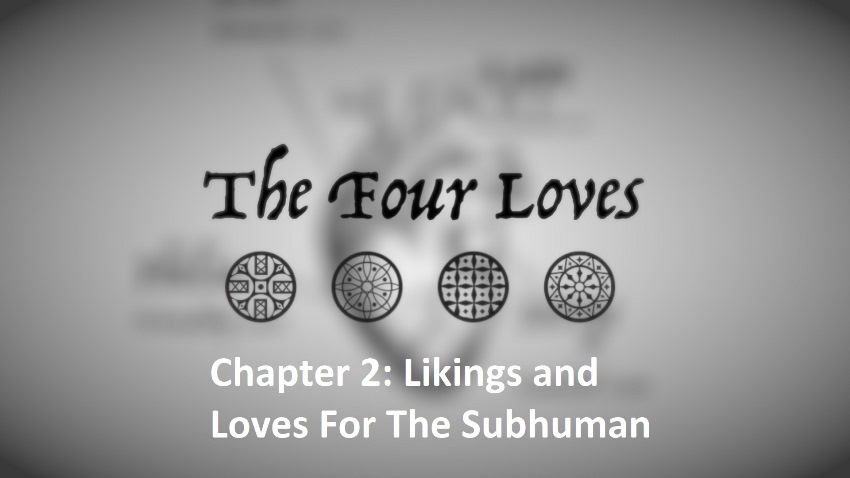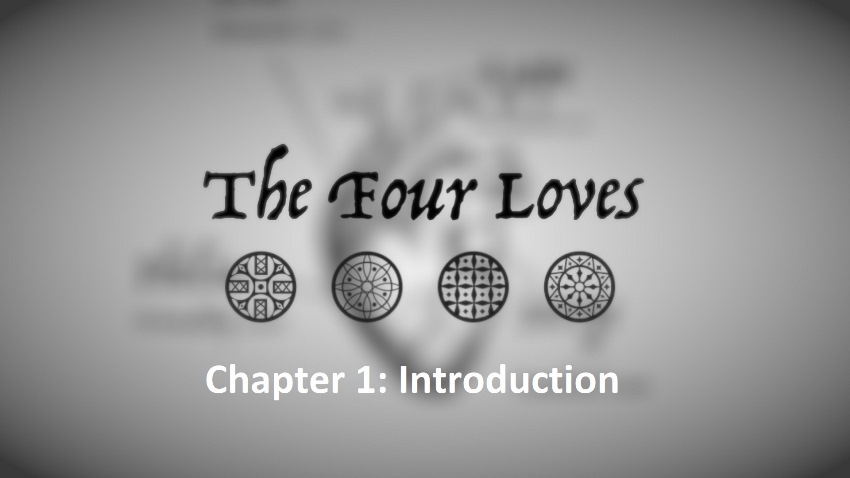The Four Loves – Chapter 2 (“Likings And Loves For The Sub-Human”)


Continuing my notes on The Four Loves, in this chapter Jack examines the likings/loves we have for things things which are not human (which he calls “subhuman”). In particular, he focuses in on love of nature and love of country. We will not deal with these in this post. Due to the length of the chapter, these will be dealt with in subsequent posts.
Notes and Quotes
1. Before we get to loves, we need to look at likes, which means we need to look at pleasures
…there is a continuity between our elementary likings for things and our loves for people. Since “the highest does not stand without the lowest”* we had better begin at the bottom, with mere likings; and, since to “like” anything means to take some sort of pleasure in it, we must begin with pleasure.
* This is a quotation from “The Imitation of Christ” by Thomas a Kempis
2. We may divide pleasures into two kinds
Now it is a very old discovery that pleasures can be divided into two classes…
(a) Need Pleasures
…those [pleasures] which would not be pleasures at all unless they were preceded by desire… An example… would be a drink of water. This is a pleasure if you are thirsty and a great one if you are very thirsty. But probably no one in the world… ever poured himself out a glass of water and drank it just for the fun of the thing.
(b) Appreciative Pleasures
…[the other kind are] those which are pleasures in their own right and need no such preparation [of desire]. An example… would be the unsought and unexpected pleasures of smell – the breath from a bean-field or a row of sweet-peas meeting you on your morning walk. You were in want of nothing, completely contented, before it; the pleasure, which may be very great, is an unsolicited, super-added gift.
3. There can be complications with dividing up pleasures in this way
(a) You can have both pleasures at the same time
If you are given a coffee or beer where you expect (and would have been satisfied with) water, then of course you get a pleasure of the first kind (allaying of thirst) and one of the second (a nice taste) at the same time.
(b) Addiction can turn pleasure from appreciative-pleasure to need-pleasure
For the temperate man an occasional glass of wine is a treat like the smell of the bean-field. But to the alcoholic…no liquor gives any pleasure except that of relief from an unbearable craving.

